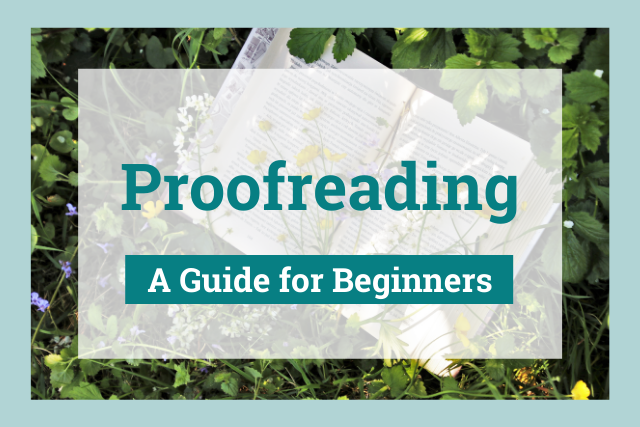
So you want to be a proofreader? Great! Whether you’re looking to proofread as a side-hustle or as your career, proofreading is a viable option for a satisfying and lucrative job.
Kudos to you for taking the next step by researching the possibilities.
If you’re already a big fan of ProWritingAid, you’re already a lover of words and the mechanics of writing. You’re definitely ready to take the plunge.
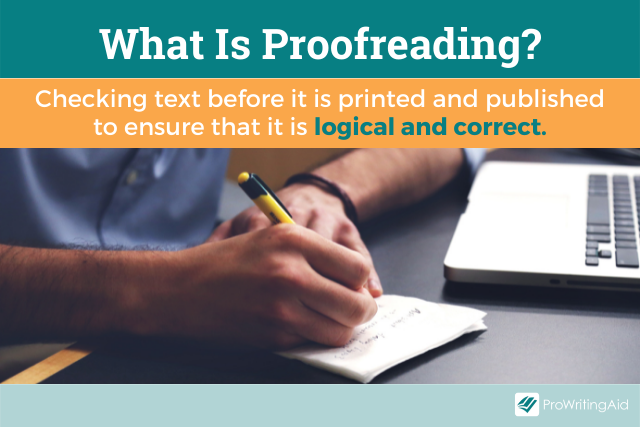
We’re going to make this really easy for you. This article is your one-stop guide to becoming a proofreader.
What Is Proofreading?
Before I explain what proofreading is, we need to briefly touch on the stages of editing.
While the editing process may vary from person to person, there are a few key stages that are always included:
- Developmental editing
- Copy editing
- Proofreading
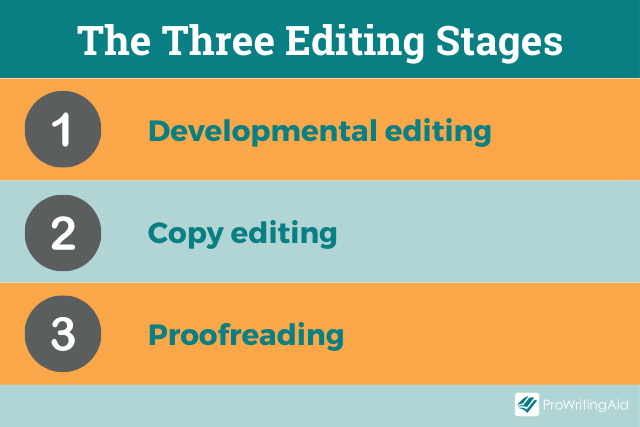
As you can see, proofreading is the final stage of the editing process. It is the final check after formatting and before self-publishing or sending a manuscript to an agent or publisher.
Who Is a Proofreader? What Does a Proofreader Do?
As a proofreader, what exactly is your job?
A proofreader reads a book’s printed proof to check for typesetting errors before the final print run.
They don’t work with the author on their manuscript to make any substantial changes to the story. If you’re looking for a more interactive role, then you might be looking to be an editor.
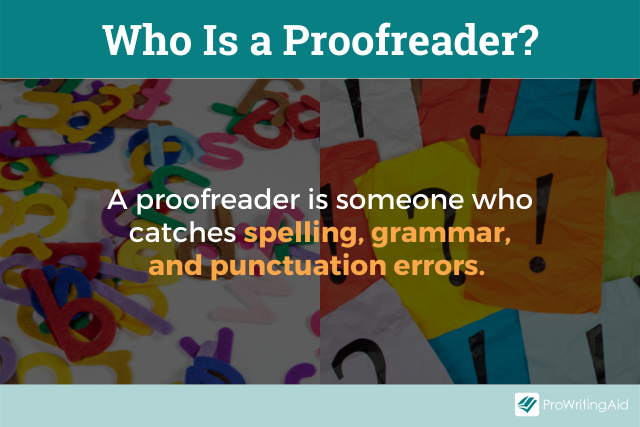
What Does Proofreading Involve?
If you’re going to be a proofreader there are few things that will become a part of your routine.
While responsibilities might vary from company to company and job to job, as a proofreader you’ll be responsible for catching spelling, grammar, and punctuation errors.
There are many niche areas of proofreading that you can dabble in. For example, you may choose to work on documents specifically related to law, medicine, technology, or art.
For our purposes, we'll focus on the tasks you might complete as a proofreader for fiction manuscripts.
These are a few of the questions you’ll ask yourself as you proofread:
- Are the italics consistent?
- Are the headings all formatted correctly?
- Are there any missing page numbers?
- Is there any double spacing between words?
- Are there any missing headers or footers?
- Is the quotation mark usage consistent? (e.g. all curly or all straight)
These aren't all of the things you'll look for, but this list gives you an idea of the kinds of errors and inconsistencies you'll need to spot.
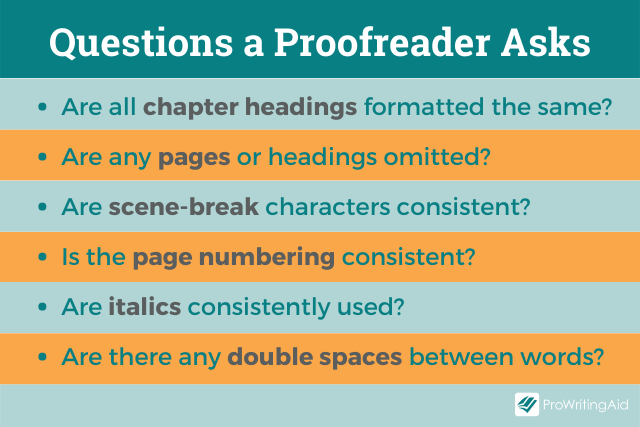
How Do I Become a Proofreader?
No matter where you are in life, if you want to become a proofreader, there are options. Let’s look at the educational requirements.
What Degrees Can Help Me to Become a Proofreader?
Let’s start with degrees. Majors in Communication, English, and Journalism are common for proofreaders—but they're not essential.
These particular degrees all introduce you to the rules of grammar and writing, as well as helping familiarize you with writing to a certain style guide. Plus you’ll have a leg up in proofreading vacancies that require a first degree.
If you’re a final year English student who’s unsure of what to do with your degree, proofreading is definitely an option. Or maybe you’re already in the communications industry. Proofreading is a great way to pivot into another related field.
"Proofreading" as a job title is a bit of a broad brush, so you might want to niche down a bit. Certain positions will definitely call for an advanced degree and perhaps experience in a particular area.
For example, a background in law will give you an advantage if you were to apply for a position proofreading legal documents.
How to Become a Proofreader Without a Degree
However, that’s not to say that you can’t be successful without a degree. In fact, certifications are becoming more commonplace. These courses will cover a few things such as:
- Citations
- Grammar
- Syntax
Make sure you evaluate the courses against your needs so you’re getting exactly what you need out of it.
Major accredited institutions include the U.S. Proofreader Certification Association or the Editors Association of Canada.
Both are referred to as the gold standard when it comes to being certified as a proofreader.
The process is similar for both: you select the credentials that best suit you, pay the requisite fees and take the exam, and if you pass you’re all set! You’re now a certified proofreader.
The next step is to find clients in your chosen niche. You can also supplement what you learn in your courses with writing experience. Seeking out internships is a sure way to gain relevant experience that puts you in a better position to land a job.
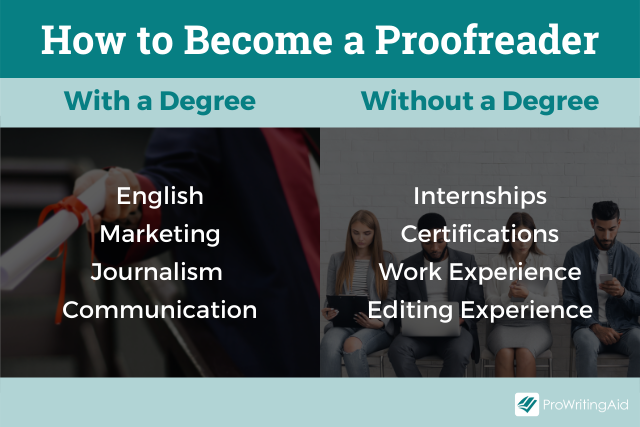
What Skills Are Needed for Proofreading as a Job?
In addition to training, there are certain skills that you’re going to need if you want to become a proofreader. Let’s look at soft skills and technical skills.
Soft Skills Needed to Become a Proofreader
There are some soft skills that are indispensable in this field. You’ll need to have eagle eyes and care enough about the nitty-gritty.
You know the saying The devil is in the detail? That’s your mantra now.
You also need to have a willingness to research the things you don’t know.
This is a particular asset if you’re hoping to work across industries as you’re bound to come across topics that you’re not familiar with.
Good time management will also become invaluable as you work to meet deadlines, and good communication skills are key when working with clients.
You’re essentially acting in the capacity of a problem-solver for your clients. You want to ensure that they’re not only getting a bang for their buck, but also that you deliver the services professionally.
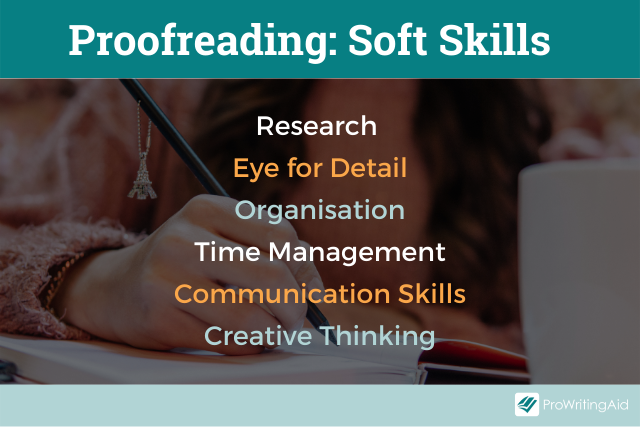
What Technical Skills Do I Need to Work in Proofreading?
Since we’re in modern age, you’ll find that most of your proofreading tasks will require a computer.
Which is why it’s super helpful if you possess some proficiency in word processing, editorial software, and spreadsheets.
There are some clients who specifically seek freelancers who are familiar with specific editorial styles, so it doesn’t hurt to familiarize yourself with the Associated Press (AP) Stylebook and/or the Chicago Manual of Style.
Of course these are all things you can learn if you don’t already have knowledge of them.
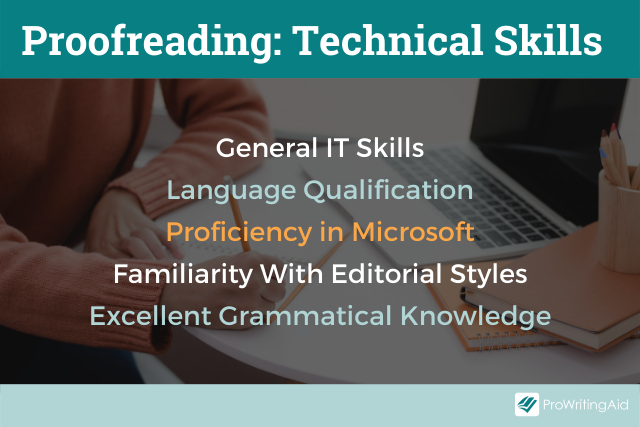
Is There Any Software That Can Help With Proofreading?
Using software as a proofreader isn't cheating—it's efficient. By automating certain tasks like US and UK spelling consistency, punctuation consistency, and acronym checking, you leave more of your attention for the trickier stuff.
ProWritingAid's Consistency Report will highlight where a writer has used hyphens and em dashes interchangeably, capitalization inconsistency, English language inconsistencies, differently-typed ellipses, and more.
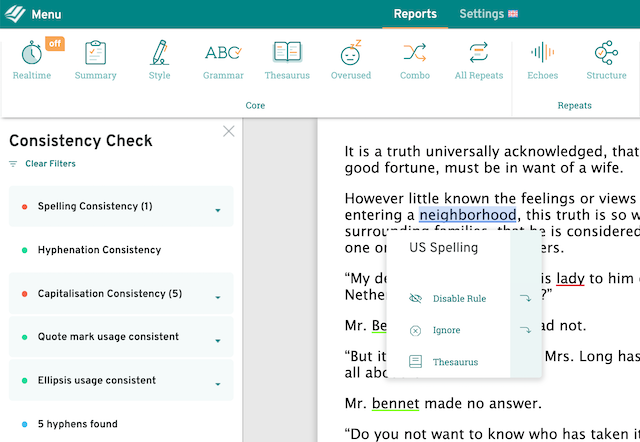
You're being paid to proofread. You'll go back over the writing after fixing errors with ProWritingAid—but the software will catch the glaring errors that may distract you from the finer details.
Try the Consistency Report with a free account.
What’s the Average Salary for Proofreading Jobs?
According to proofreading expert Caityln Pyle, "proofreaders can charge per word, per page, per project, or per hour. It depends on the length of the project and your own preferences."
She mentioned that she was able to earn $43,000 a year as a proofreader, and that was only part time!
Which pretty much matches the data from the United States Bureau where the median wage is $41,140 with the ability to earn upwards of $65,840.
And of course, as a freelancer you’re free to charge what you want, backed by your skills and experience.
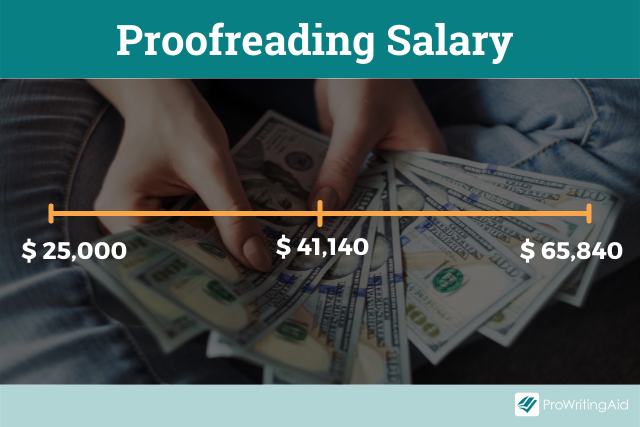
Is There a Demand for Proofreading Services?
You bet your bottom dollar there is. As long as there are documents being written, there are mistakes being made.
And as long as mistakes are being made, you guessed it, there will always be a need for proofreaders to spot them.
There are numerous freelancing opportunities to take advantage of. There are plenty of online job sites that post proofreading vacancies, whether part-time or full time.
Once you've built up a solid client base, all that's left to do is manage them. If each of your clients requires different styles, terms, punctuation, and capitalization, keeping track of them all can become a headache.
ProWritingAid's Style Guides allow you to create custom rules for your writing's grammar, style, and punctuation. Check out our guide to creating style guide rules to see how you can automate those client-specific demands.
Ready to Embark on a Career in Proofreading?
Of course you are! That’s why you’re here, isn’t it? And we’re here to tell you, you have all it takes.
When it comes to embarking on something new, imposter syndrome may kick in from time to time.
But don’t be deterred, use these tips as the starting point to gain the momentum you need. You’ve got this!


